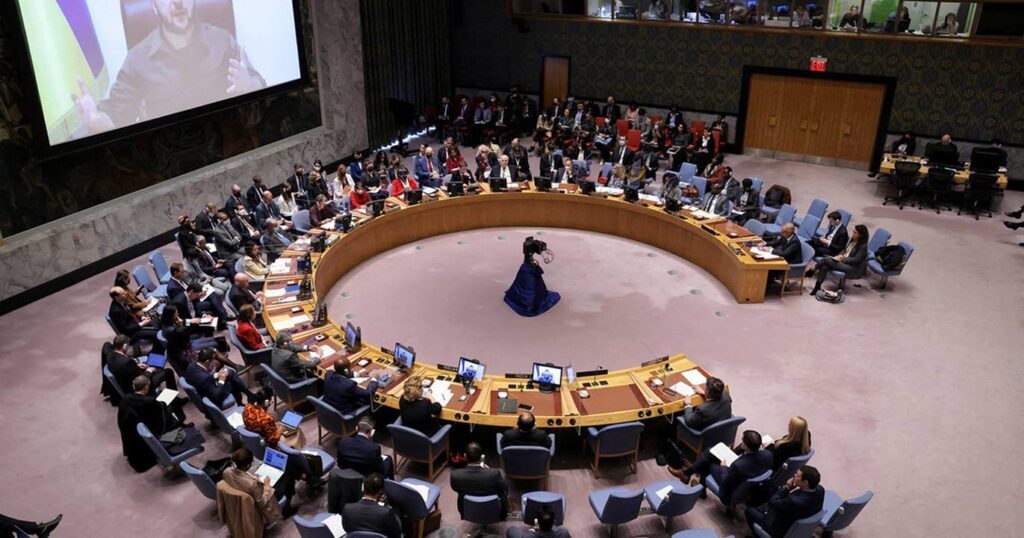The United Nations Security Council is set to vote on Tuesday on a pivotal proposal to transform the current UN-backed security mission in Haiti into a robust, full-scale force. This initiative aims to address the escalating gang violence that has plunged the Caribbean nation into chaos. Currently, the Multinational Security Mission (MSS) comprises 1,000 police officers, predominantly from Kenya, who are assisting the overwhelmed Haitian police force. However, the mission, established in 2023, has yielded inconsistent results. Laurent Saint-Cyr, head of the Haitian Transitional Presidential Council, recently highlighted the dire situation at a UN diplomatic gathering, describing Haiti as a ‘country at war’ and a ‘human tragedy on America’s doorstep.’ He emphasized the urgent need for international intervention, citing the displacement of over a million people and the destruction of entire neighborhoods. The proposed expansion, spearheaded by the United States and Panama, would increase the force to a maximum of 5,500 personnel, including both police and military units, for an initial one-year period. Kenya’s President William Ruto expressed confidence that with adequate resources and logistics, Haiti’s security could be restored. The plan also includes establishing a UN support office to provide logistical and financial backing. US Deputy Secretary of State Christopher Landau underscored the mission’s mandate to proactively target gangs and restore stability. However, the resolution faces potential opposition, with China and Russia expressing skepticism about the mission’s effectiveness without political reforms in Haiti. Both countries abstained from the initial vote, and their positions remain uncertain ahead of Tuesday’s decision. Haiti, the poorest nation in the Americas, has been plagued by violent gangs, political instability, and a lack of elections since 2016. The situation deteriorated further in early 2024 when gangs forced Prime Minister Ariel Henry to resign, leaving the country under the leadership of a Transitional Presidential Council.
